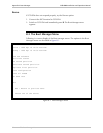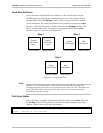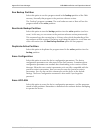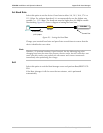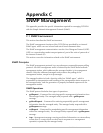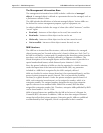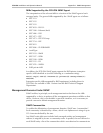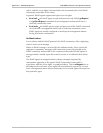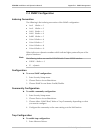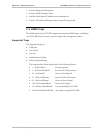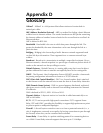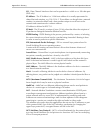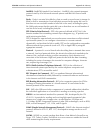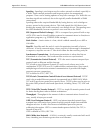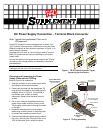
Appendix C SNMP Management FCD-IPM Installation and Operation Manual
C-4 SNMP Environment
with it, and the access rights associated with each community (this is the SNMP
community name table of the entity).
In general, SNMP agents support two types of access rights:
• Read-only − the SNMP agent accepts and processes only SNMP getRequest
and getNextRequest commands from management stations which have a
read-only community name.
• Read-write − the SNMP agent accepts and processes all the SNMP commands
received from a management station with a read-write community name.
SNMP agents are usually configured to send traps to management stations
having read-write communities.
Authentication
In accordance with the SNMP protocol, the SNMP community of the originating
entity is sent in each message.
When an SNMP message is received by the addressed entity, first it checks the
originator's community: messages with community names not included in the
SNMP community names table of the recipient are discarded (SNMP agents of
managed entities usually report this event by means of an authentication failure
trap).
The SNMP agents of managed entities evaluate messages originated by
communities appearing in the agent's SNMP Community Names table in
accordance with the access rights, as explained above. Thus a setRequest for an
MIB object with read-write access rights will nevertheless be rejected if it comes
from a management station whose community has read-only rights with respect to
that particular agent.



